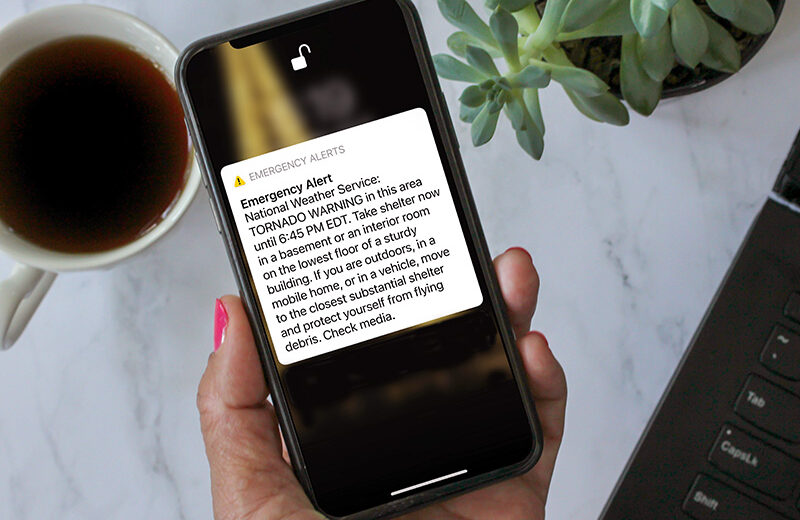Communication can be challenging during emergencies due to various factors such as loud sirens, stressful situations, and disrupted phone lines. This can make it difficult to speak, hear, or think clearly. People with hearing impairments encounter extra challenges, such as trouble receiving notifications and communicating effectively in emergencies. Danger can be detected not only by sirens. Our hearing helps us stay aware of our surroundings and catch subtle cues of approaching danger, such as a home invader, water leak, or elevator malfunction. Additionally, it’s important to note that hearing plays a significant role in providing directional information. People with limited hearing may unintentionally wander into a dangerous situation. To prepare for emergencies, it’s essential to plan ahead. While people who hear fine may find the sound of sirens loud and uncomfortable, those with hearing impairments may not hear emergency alerts like fire alarms, smoke detectors, and vehicle sirens. Follow these emergency hearing loss tips to help keep your loved ones and yourself safe in the event of an emergency.
Emergency Hearing Loss Tips: How to Stay Safe in an Emergency
Begin by Preparing in Advance
Emergencies can catch us off guard, whether it’s a car accident, natural disaster, or medical emergency. However, you can prepare yourself for such unexpected situations. Having a plan outlining where to go and the steps to follow during a crisis is a good idea. Consider readying an emergency go-bag, designating a meeting spot, and following other recommended emergency preparation steps. Additionally, it may be beneficial to discuss emergency plans with a friendly neighbor and ask them to check in on you if they hear your alarm.
Update Your Safety Devices Regularly
For people with hearing loss, smoke alarms and carbon monoxide detectors that emit beeps when danger is detected might not be helpful. To ensure their safety, individuals with hearing loss should consider using alerting devices that emit lower-frequency sounds, incorporate visual cues, or have vibrotactile elements. These devices can include a doorbell that blinks a light or an alarm that shakes the bed. It’s important to note that most people don’t wear their hearing aids to sleep, so these visual or tactile systems can provide extra safety.
Keep Hearing Aids on Hand
It’s important to wear hearing aids if you need them, as they can help you hear warning signs and improve communication. However, they require power to function, so keeping them charged or using fresh batteries and maintaining them well is essential. For easy access during an emergency, charge them near your bed or secure them to your bedside table in earthquake-prone areas. It’s also a good idea to keep spare batteries in various places, such as your car or purse. If you have rechargeable hearing aids, a portable power bank can be helpful and easily stored in your car or go-bag.
Register to Receive Emergency Alerts
When receiving emergency messages, it is highly recommended to choose text alerts over phone alerts. This is because text alerts provide a clearer and more reliable means of communication, ensuring that the message is received promptly and accurately. By opting for text alerts, you can avoid missing important information, which can be critical in emergency situations.
Wear a Medical I.D. Bracelet
Functional jewelry like medical I.D. bracelets or necklaces can help people with invisible disabilities like hearing loss or allergies to medication. It can also provide important information to first responders or emergency room staff about any condition you have and other vital information like your name. You can include details about your hearing loss, medication, and additional important health information.
Put an Emergency Bag Together
When preparing an emergency bag, remember to include a power source for your hearing aids and a pen and paper to aid communication. If you use sign language, bringing flashlights and batteries is vital to ensure your hands can be seen. Flashlights can also be useful for lipreading. Additionally, it’s a good idea to pack waterproof containers for your hearing aids or cochlear implants and pre-printed communication cards.
Ask for Help from Others When Needed
In circumstances where assistance is required, it is recommended to seek help from first responders, neighbors, acquaintances, and loved ones. In the event of a public emergency, such as a severe storm or large earthquake, it is advised to approach those in the surrounding area for assistance with communication or to provide an additional set of ears. Do not hesitate to reach out to others for help when needed.





